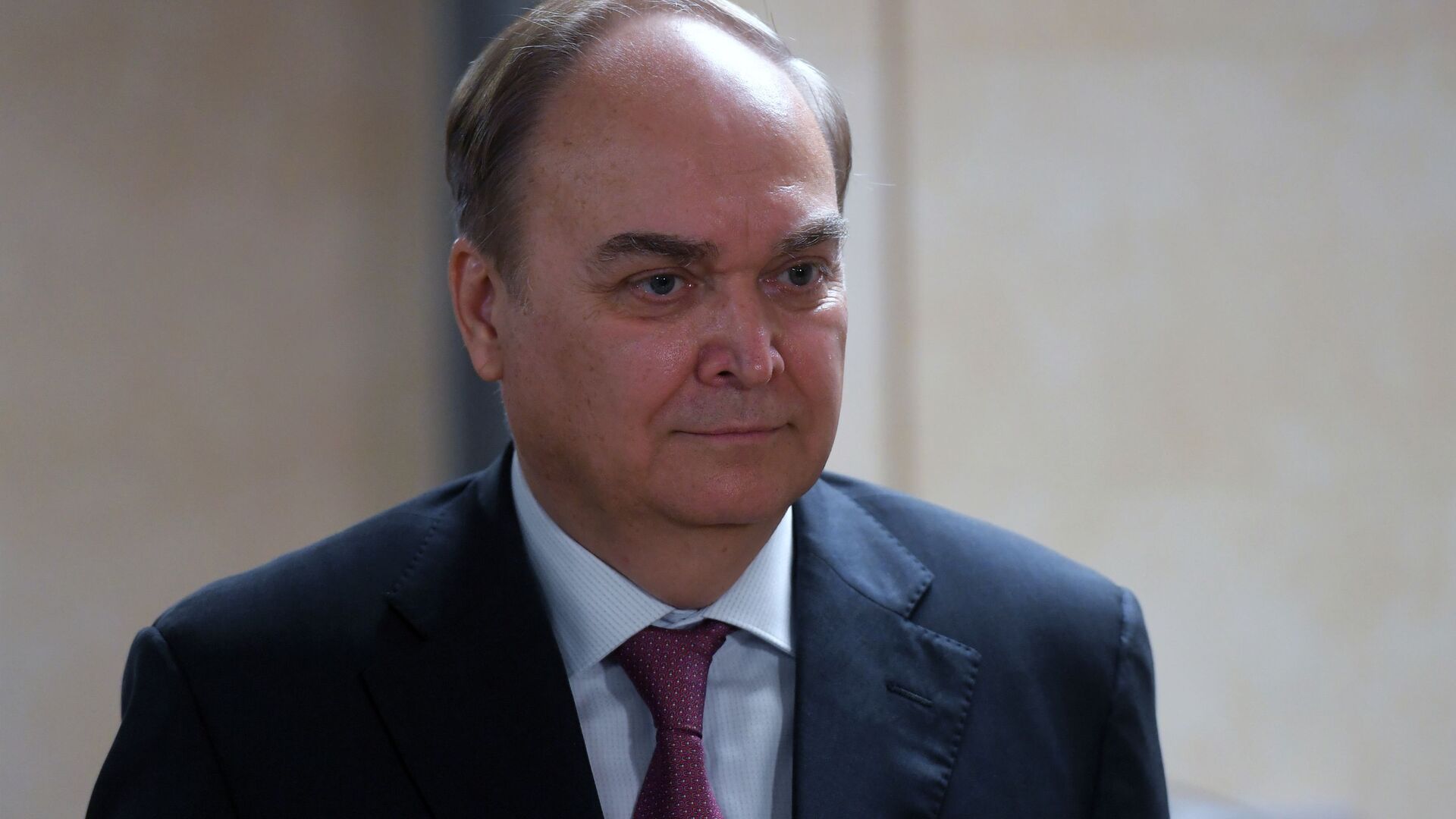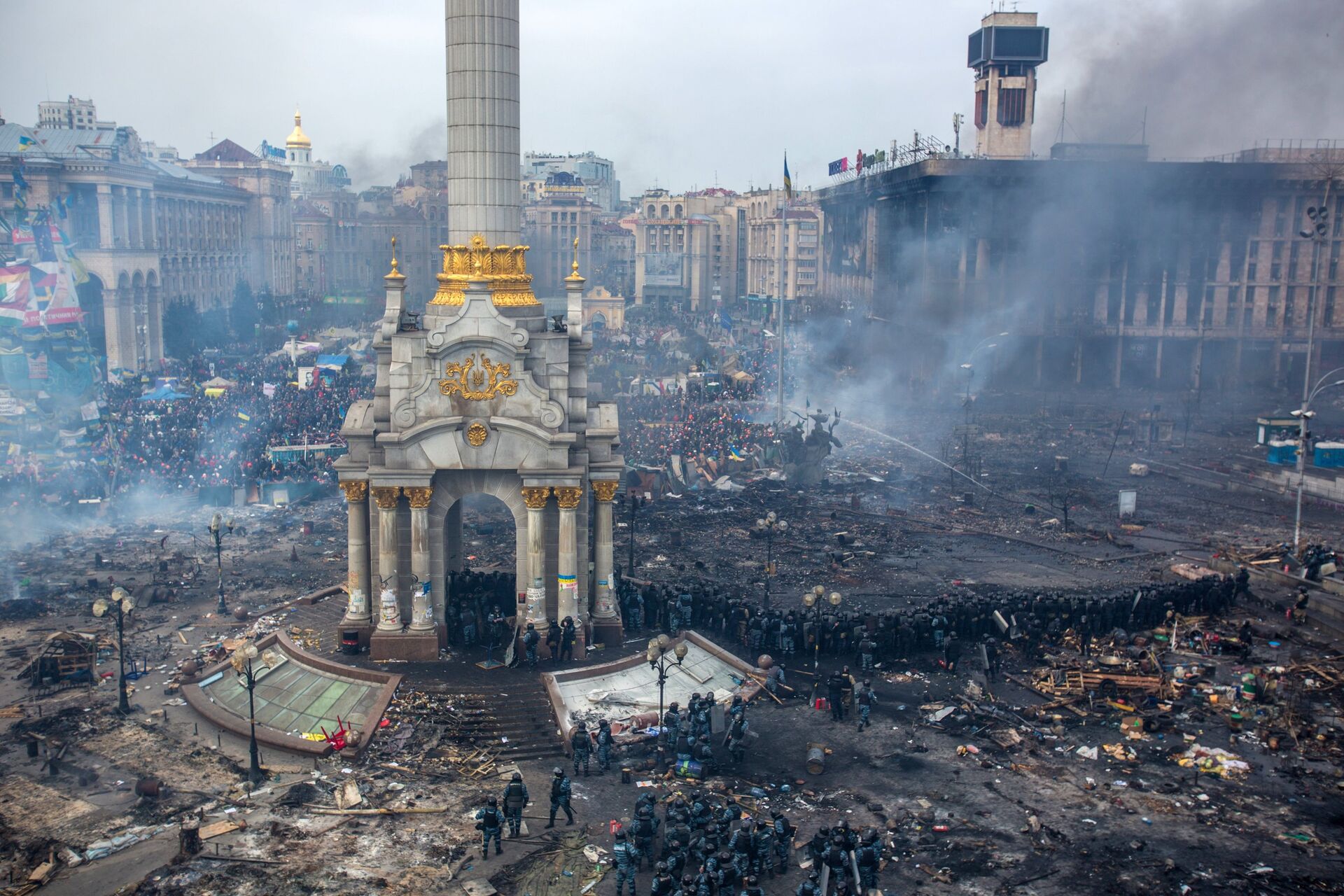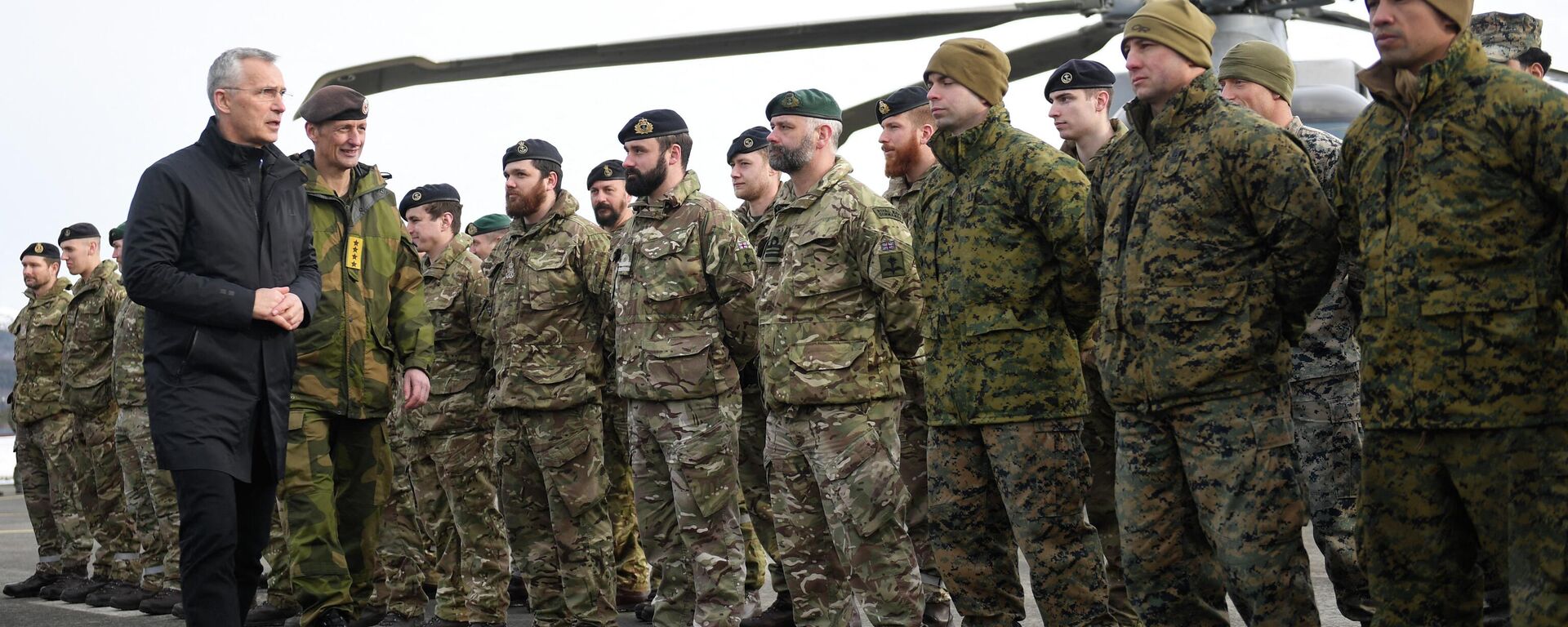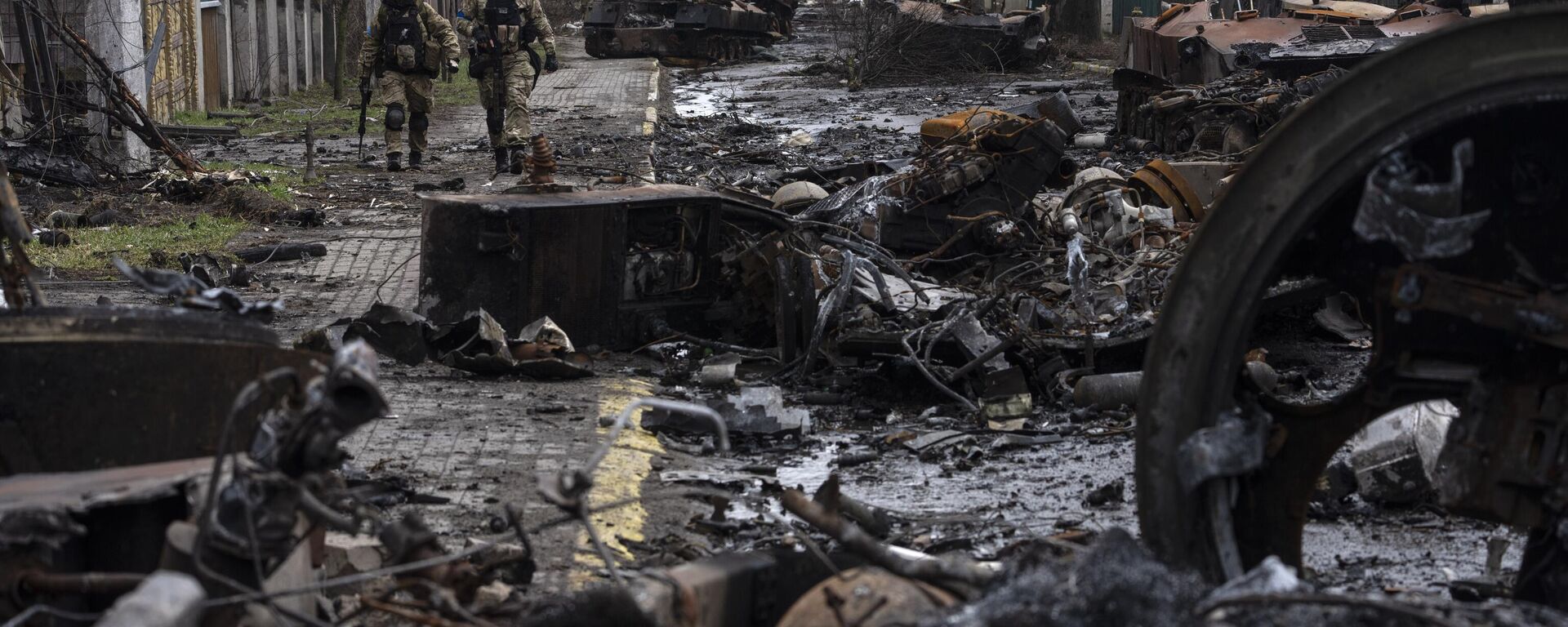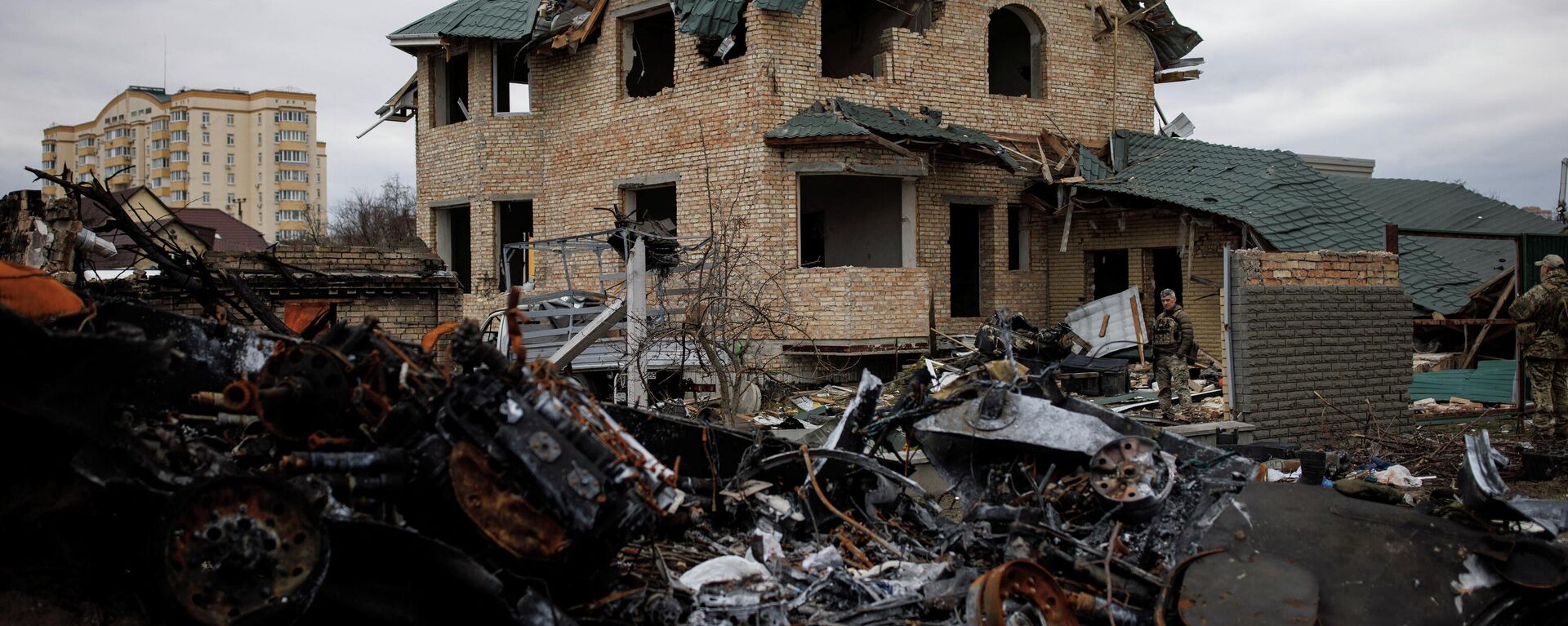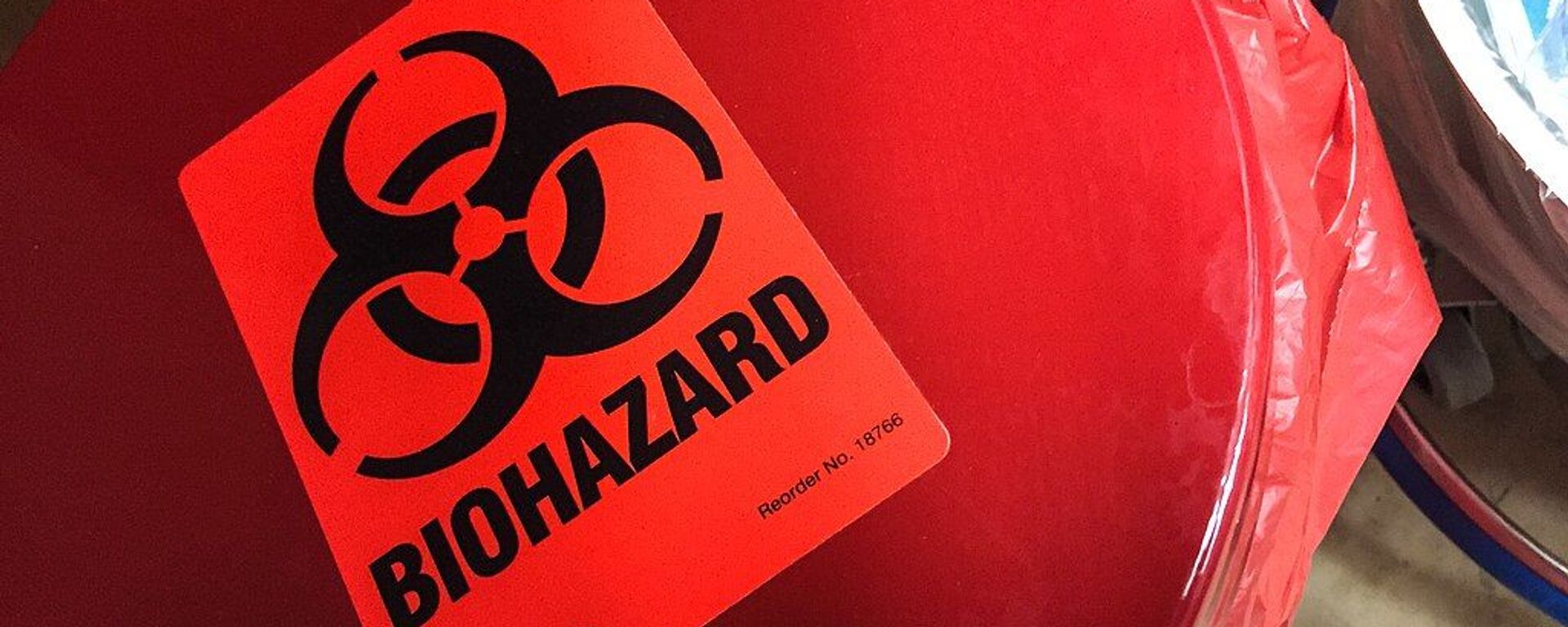https://sputnikglobe.com/20220409/actions-of-the-west-in-ukraine-could-lead-to-military-confrontation-between-us--russia---antonov-1094606273.html
Actions of the West in Ukraine Could Lead to 'Military Confrontation' Between US & Russia - Antonov
Actions of the West in Ukraine Could Lead to 'Military Confrontation' Between US & Russia - Antonov
Sputnik International
The senior Russian diplomat outlined Moscow's reasoning for launching its special operation on 24 February to demilitarise and de-Nazify Ukraine. 09.04.2022, Sputnik International
2022-04-09T05:07+0000
2022-04-09T05:07+0000
2022-04-09T07:53+0000
russia
ukraine
us
anatoly antonov
volodymyr zelensky
russia's special operation in ukraine
https://cdn1.img.sputnikglobe.com/img/07e5/07/15/1083426418_0:135:3157:1911_1920x0_80_0_0_5c515fa7b68794b91ca74eef8e34e223.jpg
Amid a scramble by the Joe Biden administration and NATO allies to shore up the Kiev regime’s defences by vowing to send more military assistance to Ukraine, such aid only worsens the conflict, warned Moscow's ambassador to the United States, Anatoly Antonov, and could potentially lead to a direct conflict between the US and Russia.The actions of the West in Ukraine are dangerous and could lead to "military confrontation" between the US and Russia, said the envoy.Kiev's ethnic cleansing, along with its bid to join the US-led NATO military alliance, was among the driving factors that prompted Russia to start its special operation to demilitarise and de-Nazify Ukraine, said Moscow's envoy to Washington. Russia's President Vladimir Putin authorised the start of the special military operation in Ukraine on 24 February after the Donetsk and Lugansk People’s Republics (DPR and LPR) appealed for assistance amid ceaseless attacks by Kiev forces throughout an eight-year offensive targeting the predominantly Russian-speaking Donbass. Ever since, the Russian Defence Ministry has underscored that Moscow has no plans to occupy the country, with the operation exclusively targeting Ukrainian military infrastructure.Weighing in on the ongoing operation, the envoy stated:Antonov emphasised that the events that began on 24 February have roots dating back eight years, when the Euromaidan uprising of 2014 – a "bloody coup d'état instigated by the West" – toppled the lawfully-elected Ukrainian government and "ultranationalist ideas came to power in Kiev".After that, hostile policies such as the removal of Russian as a national language and the rehabilitation of nationalist Ukrainian figures such as Stepan Bandera, who collaborated with Nazi Germany during World War II, took "root in Ukraine under external administration".Fledgling independence movements created by local residents refused to accept the authority of the new political leaders, proclaiming the breakaway Donetsk and Lugansk People's Republics in the eastern region of Donbass, with Kiev sending the military in to crush the resistance in the spring of 2014.In February 2015, the leaders of Ukraine and three nations acting as guarantors – Russia, Germany, and France – met in Minsk, Belarus to sign the Minsk peace deal, calling for an immediate ceasefire and the withdrawal of heavy weapons from the front line, plus local elections in the Donbass and constitutional reform in Kiev granting the self-proclaimed republics broad autonomy.However, according to Antonov, the "nationalist frenzy and revanchist sentiments of the Kiev regime" resulted in the effective death of the Minsk deals. As a result, Ukraine opted to follow "the path of rapid militarization" with help funnelled from abroad.While violating the ceasefire, the Ukrainian government also refused to honour the political portion of the Minsk Agreements, turning the conflict into a frozen civil war.Antonov argued in the interview that ahead of Russia’s special operation, Ukraine had amassed its forces in preparation for an attack on the breakaway states in Donbass."In this context, Russia had no other choice but to recognize the independence of the Donetsk and Lugansk People's Republics. Then, in accordance with Chapter VII, Article 51 of the UN Charter, with the authorization of the Federation Council of Russia and in execution of the Treaties of Friendship and Mutual Assistance with the Donetsk People's Republic and the Lugansk People's Republic, President of the Russian Federation Vladimir Putin made a decision to begin a special military operation".Russia's envoy to the US emphasised that the goal of the operation "is to put an end to the genocide perpetrated by the Kiev regime and ensure a nuclear-free and neutral status of Ukraine".Antonov dismissed the latest Ukrainian allegations that Russian forces were responsible for targeting civilians in Bucha, underscoring that the Russian Federation is "taking the necessary measures to preserve life and safety of civilians". The Kiev authorities and Western media have been spreading video footage, purportedly from the Ukrainian town of Bucha near Kiev, with the bodies of allegedly dead people lying along a road, claiming that they are murdered civilians.The Russian Defence Ministry said that all photos and videos allegedly proving crimes by Russian troops in Bucha are yet another provocation. Furthermore, the authenticity of the claims has even been questioned by social media users, who noted that some of the "corpses" appear to move or even stand up when they are no longer in front of the camera.Russian units provided nothing but support to the locals and delivered over 450 tonnes of humanitarian aid, before withdrawing from Bucha on 30 March as part of de-escalation steps voluntarily undertaken by Moscow to facilitate peace negotiations with Ukraine.Moscow has categorically insisted that the footage from Bucha is staged specifically to be promoted in the Western media to slander Russia and sabotage peace talks between Moscow and Kiev.Antonov also weighed in on reports of the Pentagon engaging in potentially illicit biological research activities in Ukraine. Russian forces discovered US-operated biolabs in the country carrying out dangerous pathogen research. While Washington initially tried to deny their existence, they later confirmed it, while claiming the labs’ activities were unremarkable."What does the Pentagon have to do with health issues? Why are biolaboratories established along Russian borders—thousands of kilometers away from the American territory?" queried the envoy.Antonov accused the West of "demonizing” Russia, whose policy is “based on the right for all the peoples living today in the Ukrainian territory to choose their own future".Regarding the numerous rounds of talks that have taken place between Moscow and Kiev, Antonov stated that Russia’s principled position regarding the settlement of the conflict includes the demand for an “unconditional consideration of Russia's security interests, the demilitarization and denazification of the Ukrainian state, ensuring its neutral and non-nuclear status as well as the recognition of Russian sovereignty over Crimea and the independence of the Donetsk and Lugansk People's Republics".
https://sputnikglobe.com/20220408/nato-engaged-in-proxy-war-against-russia-in-ukraine-moscow-says-1094591443.html
https://sputnikglobe.com/20220404/us-deliberately-silent-on-kiev-forces-shelling-of-bucha-after-russian-pullout---antonov-1094452585.html
https://sputnikglobe.com/20220406/russian-foreign-ministry-western-media-is-accomplice-in-bucha-crime-1094525813.html
https://sputnikglobe.com/20220331/who-are-the-americans-coordinating-bioweapons-research-in-ukraine-labs-1094370470.html
ukraine
Sputnik International
feedback@sputniknews.com
+74956456601
MIA „Rossiya Segodnya“
2022
News
en_EN
Sputnik International
feedback@sputniknews.com
+74956456601
MIA „Rossiya Segodnya“
Sputnik International
feedback@sputniknews.com
+74956456601
MIA „Rossiya Segodnya“
ukraine, us, anatoly antonov, volodymyr zelensky
ukraine, us, anatoly antonov, volodymyr zelensky
Actions of the West in Ukraine Could Lead to 'Military Confrontation' Between US & Russia - Antonov
05:07 GMT 09.04.2022 (Updated: 07:53 GMT 09.04.2022) The senior Russian diplomat outlined Moscow's reasoning for launching its special operation on 24 February to demilitarise and de-Nazify Ukraine.
Amid a scramble by the Joe Biden administration and NATO allies to shore up the Kiev regime’s defences by vowing to send more
military assistance to Ukraine, such aid only worsens the conflict, warned Moscow's ambassador to the United States, Anatoly Antonov, and could potentially lead to a direct conflict between the US and Russia.
"Western states are directly involved in the current events as they continue to pump Ukraine with weapons and ammunitions, thereby inciting further bloodshed", Antonov stated in an interview for Newsweek.
The actions of the West in Ukraine are dangerous and could lead to "military confrontation" between the US and Russia, said the envoy.
"We warn that such actions are dangerous and provocative as they are directed against our state. They can lead the US and the Russian Federation onto the path of direct military confrontation. Any supply of weapons and military equipment from the West, performed by transport convoys through the territory of Ukraine, is a legitimate military target for our Armed Forces", said Antonov.
Kiev's ethnic cleansing, along with its bid to join the US-led NATO military alliance, was among the driving factors that prompted Russia to start its
special operation to demilitarise and de-Nazify Ukraine, said Moscow's envoy to Washington.
"The special operation in Ukraine is the result of the unwillingness of the Kiev regime to stop the genocide of Russians by fulfilling its obligations under the international commitments. The desire of the NATO member states to use the territory of a neighboring state to establish a foothold in the struggle against Russia is also obvious", stated Antonov.
Russia's President Vladimir Putin authorised the start of the special military operation in Ukraine on 24 February after the Donetsk and Lugansk People’s Republics (DPR and LPR) appealed for assistance amid ceaseless attacks by Kiev forces throughout an eight-year offensive targeting the predominantly Russian-speaking Donbass. Ever since, the Russian Defence Ministry has underscored that Moscow has no plans to occupy the country, with the operation exclusively targeting Ukrainian military infrastructure.
Weighing in on the ongoing operation, the envoy stated:
"Its aim is to demilitarize and denazify Ukraine in order to reduce military threats posed by the Western states that are trying to use the fraternal Ukrainian people in the struggle against the Russians".
Antonov emphasised that the events that began on 24 February have roots dating back eight years, when the Euromaidan uprising of 2014 – a "bloody coup d'état instigated by the West" – toppled the lawfully-elected Ukrainian government and "ultranationalist ideas came to power in Kiev".
After that, hostile policies such as the removal of Russian as a national language and the rehabilitation of nationalist Ukrainian figures such as Stepan Bandera, who collaborated with Nazi Germany during World War II, took "root in Ukraine under external administration".
Fledgling independence movements created by local residents refused to accept the authority of the new political leaders, proclaiming the breakaway Donetsk and Lugansk People's Republics in the eastern region of
Donbass, with Kiev sending the military in to crush the resistance in the spring of 2014.
In February 2015, the leaders of Ukraine and three nations acting as guarantors – Russia, Germany, and France – met in Minsk, Belarus to sign the Minsk peace deal, calling for an immediate ceasefire and the withdrawal of heavy weapons from the front line, plus local elections in the Donbass and constitutional reform in Kiev granting the self-proclaimed republics broad autonomy.
However,
according to Antonov, the "nationalist frenzy and revanchist sentiments of the Kiev regime" resulted in the effective death of the Minsk deals. As a result, Ukraine opted to follow "the path of rapid militarization" with help funnelled from abroad.
While violating the ceasefire, the Ukrainian government also refused to honour the political portion of the Minsk Agreements, turning the conflict into a frozen civil war.
"The NATO member countries have commenced a military exploration of Ukraine… It was flooded with Western weaponry while President Volodymyr Zelensky announced Kiev's plans to acquire nuclear weapons which would threaten not only neighboring countries, but also the entire world", the Russian diplomat stated.
Antonov argued in the interview that ahead of Russia’s special operation, Ukraine had amassed its forces in preparation for an attack on the breakaway states in Donbass.
"In this context, Russia had no other choice but to recognize the independence of the Donetsk and Lugansk People's Republics. Then, in accordance with Chapter VII, Article 51 of the UN Charter, with the authorization of the Federation Council of Russia and in execution of the Treaties of Friendship and Mutual Assistance with the Donetsk People's Republic and the Lugansk People's Republic, President of the Russian Federation Vladimir Putin made a decision to begin a special military operation".
Russia's envoy to the US emphasised that the goal of the operation "is to put an end to the genocide perpetrated by the Kiev regime and ensure a nuclear-free and neutral status of Ukraine".
Antonov dismissed the latest Ukrainian allegations that Russian forces were responsible for targeting civilians in Bucha, underscoring that the Russian Federation is "taking the necessary measures to preserve life and safety of civilians".
The Kiev authorities and Western media have been spreading video footage, purportedly from the Ukrainian town of Bucha near Kiev, with the bodies of allegedly dead people lying along a road, claiming that they are murdered civilians.
The Russian Defence Ministry said that all photos and videos allegedly proving crimes by Russian troops in Bucha are yet another provocation. Furthermore, the authenticity of the claims has even been questioned by social media users, who noted that some of the "corpses" appear to move or even stand up when they are no longer in front of the camera.
Russian units provided nothing but support to the locals and delivered over 450 tonnes of humanitarian aid, before withdrawing from Bucha on 30 March as part of de-escalation steps voluntarily undertaken by Moscow to facilitate peace negotiations with Ukraine.
Moscow has categorically insisted that the footage from Bucha is staged specifically to be promoted in the Western media to slander Russia and sabotage peace talks between Moscow and Kiev.
Antonov also weighed in on reports of the Pentagon engaging in potentially illicit
biological research activities in Ukraine. Russian forces discovered US-operated biolabs in the country carrying out dangerous pathogen research. While Washington initially tried to deny their existence, they later confirmed it, while claiming the labs’ activities were unremarkable.
"What does the Pentagon have to do with health issues? Why are biolaboratories established along Russian borders—thousands of kilometers away from the American territory?" queried the envoy.
Antonov accused the West of "demonizing” Russia, whose policy is “based on the right for all the peoples living today in the Ukrainian territory to choose their own future".
Regarding the numerous rounds of talks that have taken place between Moscow and Kiev, Antonov stated that Russia’s principled position regarding the settlement of the conflict includes the demand for an “unconditional consideration of Russia's security interests, the demilitarization and denazification of the Ukrainian state, ensuring its neutral and non-nuclear status as well as the recognition of Russian sovereignty over Crimea and the independence of the Donetsk and Lugansk People's Republics".
